

Chapter 2 Console Input and Output
Multiple Choice
1) Valid arguments to the System.out object’s println method include:
(a) “Anything with double quotes”
(b) String variables
(c) Variables of type int
(d) All of the above
Answer: D
2) Which statement or group of statements produces the output: Java programming is fun!
(a) System.out.print(Java programming); System.out.print(is fun!);
(b) System.out.println(Java programming is fun!);
(c) System.out.println(“Java programming”); System.out.println(“ is fun!”);
(d) System.out.print(“Java programming”) System.out.println(“ is fun!”);
Answer: D
3) If a hyphen is added after the % in a format specifier, the output will be _________.
(a) Left justified
(b) Right justified
(c) Centered
(d) None of the above
Answer: A
4) The statement: System.out.printf("%6.2f", 597.7231); displays:
(a) 597.723
(b) 597.72
(c) 000597.72
(d) None of the above
Answer: B
5) The Java method printf is based on the ________ language.
(a) Pascal
(b) C++
(c) C
(d) ADA
Answer: C
6) The class NumberFormat allows you to specify a constant representing which country’s currency format should be used. To use this constant you must import:
(a) java.util.Locale
(b) java.util.Currency
(c) java.util Properties
(d) None of the above.
Answer: A
7) Standard code libraries in Java are called:
(a) Methods
(b) Classes
(c) Packages
(d) Statements
Answer: C
8) What does the following code output?
DecimalFormat percent = new DecimalFormat("0.00%"); System.out.println(percent.format(0.308));
(a) 3.080%
(b) 30.80%
(c) .0308%
(d) 308.0%
Answer: B
2 Walter Savitch • Absolute Java 5/e: Chapter 2, Test Bank9) What does the following code output?
DecimalFormat dfQuestion = new DecimalFormat("#0.##E0"); System.out.println(dfQuestion.format(12.7896987));
(a) 12.79E0
(b) 12.8E0
(c) 1.28E1
(d) .13E2
Answer: A
10) What Java package includes the class Scanner?
(a) awt
(b) swing
(c) io
(d) util
Answer: D
True/False
1) Efficiency is lost in importing the entire package instead of importing the classes you use.
Answer: False
2) Every Java program automatically imports the java.util package.
Answer: False
3) The new line character is represented as ‘\n’
Answer: True
4) The method printf is used the same way as the method println but has the added feature that allows you to add formatting instructions.
Answer: False
5) The printf method can be used to output multiple formatted values.
Answer: True
6) The Scanner class has a method next that allows an entire line of string text to be read.
Answer: False
©2013
Another random document with no related content on Scribd:
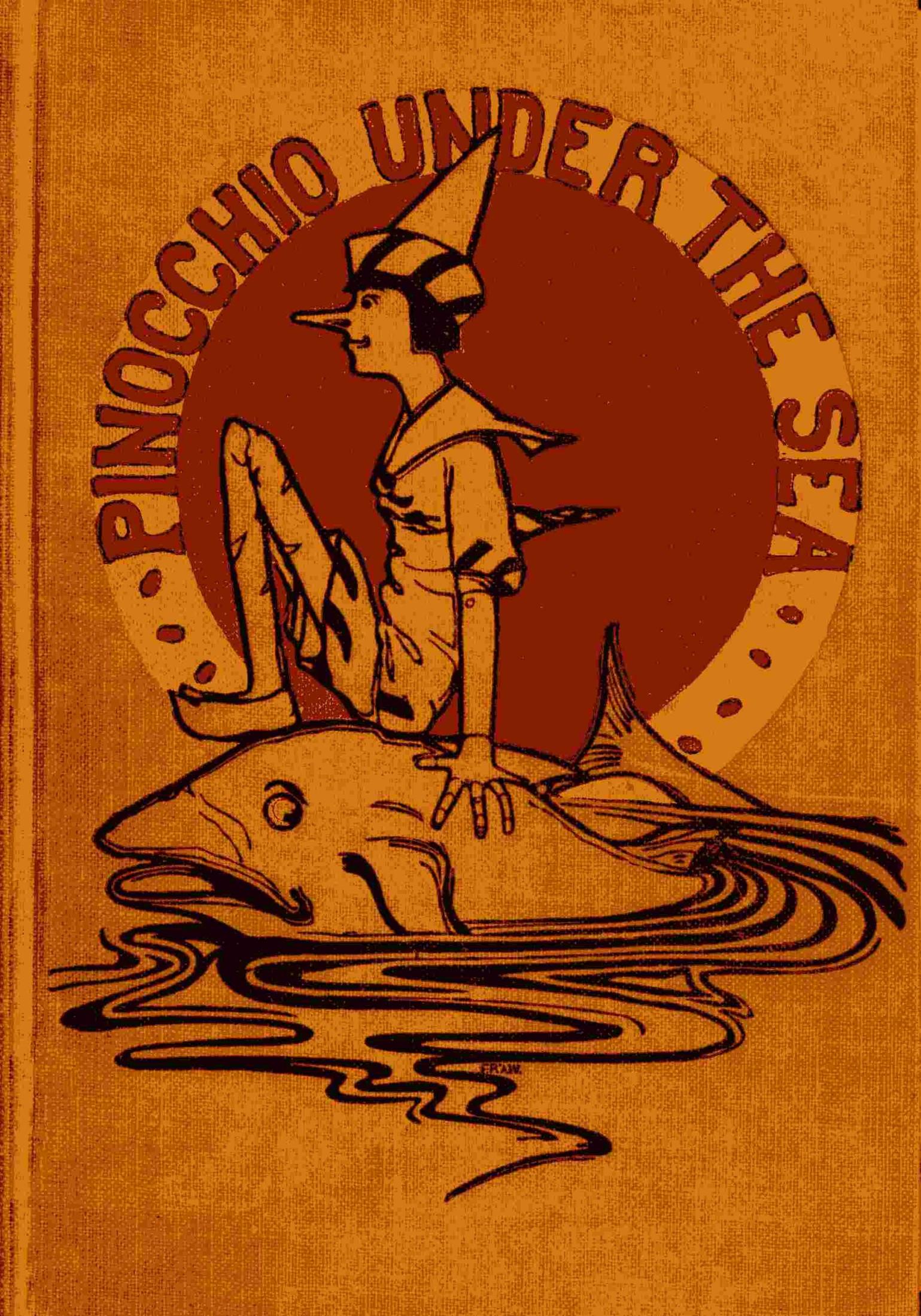
 The Project Gutenberg eBook of Pinocchio under the sea
The Project Gutenberg eBook of Pinocchio under the sea
This ebook is for the use of anyone anywhere in the United States and most other parts of the world at no cost and with almost no restrictions whatsoever. You may copy it, give it away or re-use it under the terms of the Project Gutenberg License included with this ebook or online at www.gutenberg.org. If you are not located in the United States, you will have to check the laws of the country where you are located before using this eBook.
Title: Pinocchio under the sea
Author: Gemma Mongiardini-Rembadi
Editor: John W. Davis
Illustrator: Florence R. A. Wilde
Translator: Carol Della Chiesa
Release date: October 15, 2023 [eBook #71880]
Language: English
Original publication: New York: The MacMillan Company, 1913
Credits: Charlene Taylor, Brian Wilsden, and the Online Distributed Proofreading Team at https://www.pgdp.net (This file was produced from images generously made available by The Internet Archive/American Libraries.)
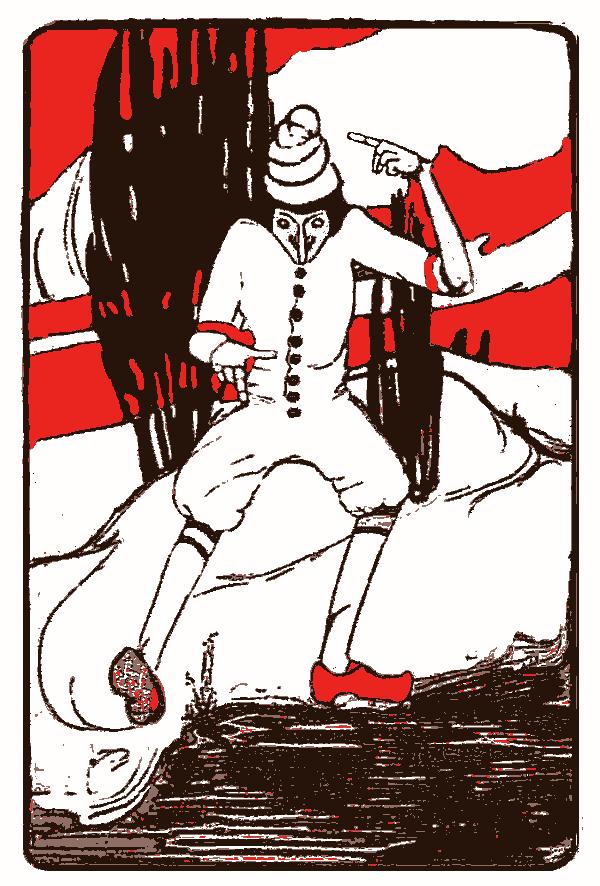
“PINOCCHIO LOOKED AT HIMSELF IN THE WATER.”
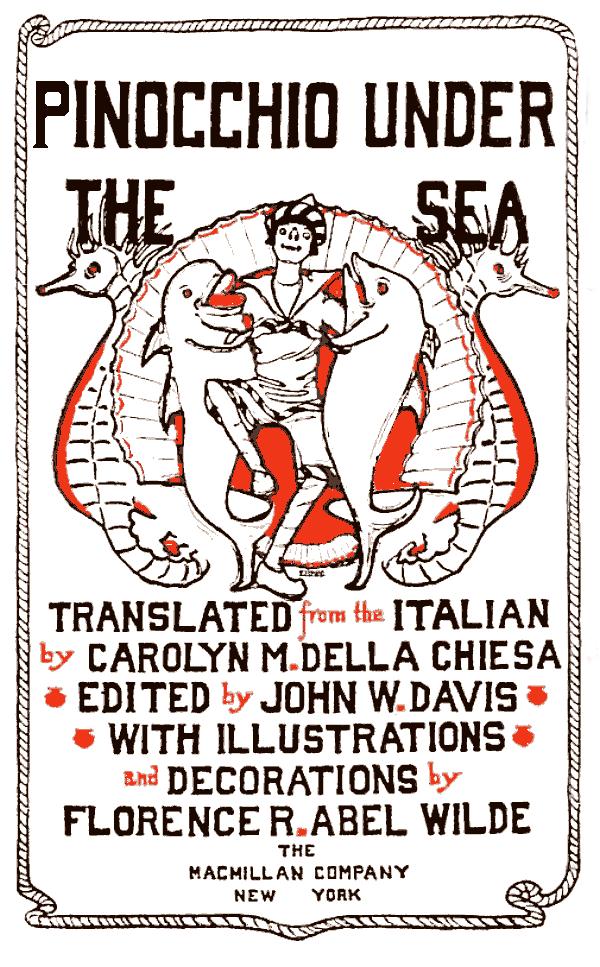
PINOCCHIO UNDER THE SEA
TRANSLATED from the ITALIAN
by CAROLYN M. DELLA CHIESAEDITED by JOHN W. DAVIS WITH ILLUSTRATIONS and DECORATIONS by FLORENCE R. ABEL WILDE
THE MACMILLAN COMPANY NEW YORK
As I have purchased the literary copyright for the translation into and the publication in the English language of the volume “Il Segreto di Pinocchio,” by Mongiardini-Rembadi, its reproduction in English is hereby reserved.— C������ M. D����C�����.
C��������, 1913, B� THE MACMILLAN COMPANY.
Set up and electrotyped. Published September, 1913.
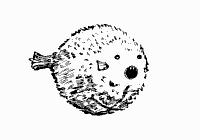
Norwood Press
J. S. Cushing Co.—Berwick & Smith Co. Norwood, Mass., U.S.A.
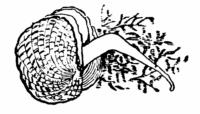
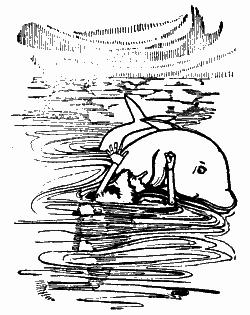
PINOCCHIO UNDER THE SEA
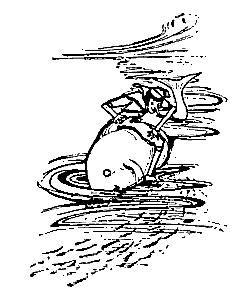
Pinocchio Under the Sea
CHAPTER I
H��� you ever read the Adventures of Pinocchio? What a famous fellow he was! He could talk and walk and live as you do, children; and still he was only a marionette! How sad the little fellow felt when he saw his father disappear in his little boat over the sea!
Do you remember how Pinocchio then tried to swim across the ocean? How he did his best to save his poor old father? How he jumped into the water? How he swam and swam over those great, high waves? And how at last he became so tired, that he could only lie still and let the waves carry him?
If you remember this, you will also surely remember that on the next day Pinocchio, almost lifeless, was thrown on an island. There he found himself on a small stretch of ground. All around him was the great ocean.
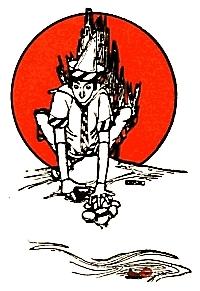
Where could he get news of his dear old father? As he looked about him, he saw a large dark object in the water. It was a dolphin. It had stuck its nose out of the water and seemed to be waiting for the marionette. Of Pinocchio’s father, the dolphin knew nothing.
“But,” said he, “I am very much afraid the boat has been lost in the night.”
My dear children, if you have a good memory, you cannot forget that after saying this the dolphin turned and disappeared.
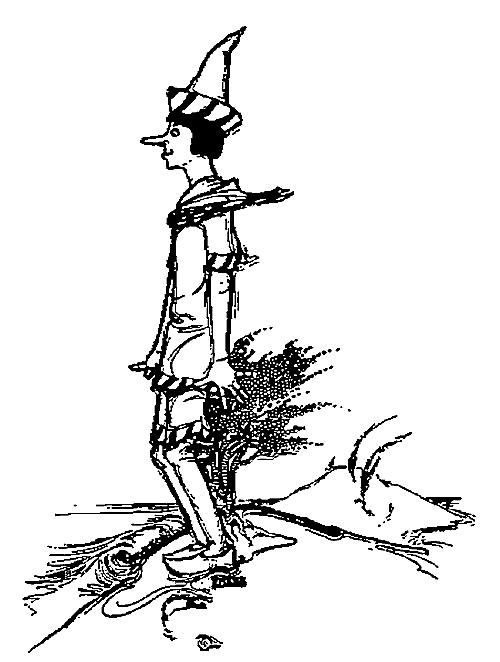
“A�� ������ ��� ��� ��� G���� O����.”
This is not true. Indeed not. On the contrary, Pinocchio and the dolphin had a long talk one with the other. At the end of it, they decided to take a long journey together.

CHAPTER II
W���� the two were talking, Pinocchio kept thinking and thinking of his dear father. He looked so sad that the dolphin finally said to him:
“If you grieve so much for the loss of your father, you must be a good son. We dolphins are very fond of good children, and I more than others. To prove this to you, I shall only say that the dolphin of which Pliny speaks was my great-grandfather.”
“Pliny?” said Pinocchio. And he wrinkled his nose, because the name was not very well known to him.
“Yes, Pliny the Elder, the famous author of a natural history. He was a Roman, who was born about one thousand nine hundred years ago. He was killed in a terrific eruption of Vesuvius, the one that destroyed Herculaneum and Pompeii.”
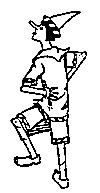
Vesuvius, Herculaneum, and Pompeii were as familiar to the marionette as was Pliny To speak plainly, he knew nothing whatever about them. But, making believe he understood everything, he said, “Yes, yes! These things I know. But of what does Pliny speak?”
“He tells us that in the suburbs of Naples a dolphin became very fond of a boy. Every morning he would wait near shore for the boy. When the child came, the dolphin would make the youngster climb on his back. Then the dolphin would swim to Pozzuoli, where was the boy’s school. Here the boy would go ashore, attend to his school duties, and when they were over, return to Naples on the dolphin’s back. A few years later the boy died suddenly. The dolphin, after waiting in vain for him for many days, grieved himself to death.”
“Is this little story really true?” asked Pinocchio.
“Pliny tells it. Some believe, some do not. But this matters little. To me, then, as to my parents and their parents, good children have always been pets. Now listen carefully. Among dolphins, it is the custom for the young ones to travel with the older ones. I am a tutor, and I am about to start on a long journey with a young dolphin. If you wish to come with us to look for your father, you are more than welcome.”
“My dear Mr. Dolphin, I shall be delighted. May I ask where we are to go?”
“We are to go on a journey around our world.”
“Around the world!” exclaimed the marionette. “It must be amusing to see two dolphins walking arm in arm around the streets.”
“Yes,” continued the dolphin, “this young pupil of mine, who belongs to the Marsoon family, wishes to educate himself. And how can he better educate himself than by travel?”
“To educate himself!” exclaimed Pinocchio, opening wide his eyes. That word had always been hard for him to swallow. “Educate! Oh! Oh! That word I never did like.”
“What are you saying?” asked the dolphin.
“Oh, nothing, nothing! I was just thinking that my teeth are aching.”
“Then it might hurt you to go into the water, and ...” began the dolphin, kindly
Pinocchio was perplexed. The idea of looking for his father he liked very much. Still, when he thought of that word educate, he shivered. He had always hated school as he hated fire. And you remember, he once lost his feet through playing with fire.
“What a nuisance it will be,” he kept mumbling, thinking of the sleepy time it would mean for him.
“Tell me, my dear sir,” he then said, just to gain time, “shall we travel by train?”
“Of course not! How could we? I told you that we are to travel in our world. That means that we are not to move out of the water.”
“So much the worse,” again thought Master Pinocchio. “Still, I don’t see what kind of education there can be in seeing only sea and sky! Good Mr. Dolphin, do you think that, if I go with you, I shall ever find my father?”
“Perhaps. We may come upon him on some desert island. Who knows? In any case, it is your sacred duty to look for him. Will you come?”
“Yes!” answered Pinocchio, firmly. “I will go.”
“Are you afraid?”
“Afraid,” laughed Pinocchio, with scorn. “Why, I don’t know what fear is. Just listen. Once, while traveling, I came face to face with a lion. Instead of taking to my heels as many would have done, I took a large stone and threw it into his mouth. It lodged in his throat. The poor beast looked at me so sadly, that instead of dispatching him, I took the stone out of his throat, and he went quietly away.”
“Oh, if that is the case,” replied the dolphin, who could swallow the story almost as well as the lion had swallowed the stone, “if that is the case, I beg your pardon.”
“Very well. When shall we start?”
“To-night, just after sunset.”
“How can we travel in the dark?” asked Pinocchio. He and darkness had never been great friends.
“Do not be afraid. We are to travel by the light of the sun.”
“Of the sun? Why, we are to travel by night.”
“Nevertheless,” answered the dolphin, smiling, as dolphins are wont to smile, “nevertheless, we shall travel by the light not only of one sun, but of many suns.”
Pinocchio looked at him with his mouth wide open. The dolphin calmly went on: “I promise to show you the sun in the sea.”
Pinocchio wrinkled his nose, as was his habit when puzzled. “I wonder if the dolphin is making fun of me,” he thought.
“Now I shall leave you, as I have many things to do before starting. Remember, this evening,” said the dolphin as he went off.
“Do not be afraid. I will be here,” was Pinocchio’s reply
“Very well. Good-by, Pinocchio.”
“Until to-night, Mr. Fish.”
The dolphin, who had gone a short distance, returned and said proudly, “Just to enlighten you a little, I am not a fish.”
Again Pinocchio’s eyes opened wide.
“What then? A horse?”
“Pinocchio, I am surprised at you. No, neither horse nor fish.”
“I never knew of there being anything but fish in the sea.”
“Who told you so? There are many animals, my dear boy, who live in the sea, but who are not fish.”
“What then? Birds? Elephants? Dogs?”
“Yes, sir, just so. Still, you people who live on the earth and read books, you ought to know all these things.”
“Well yes I do read books. In fact, I have read every book that has ever been written.”
“All of them? Nothing less? Why, I didn’t think a man could do that if he had a hundred lives to live,” murmured the good old dolphin.
“Well, Pinocchio,” he went on, “remember to-night, and do not forget that I am not a fish.” With this remark he disappeared in the blue waters.
Pinocchio looked after him for a long time.
“The sun in the sea? Dolphins not fish? I don’t know why, but I’m very much afraid I’m being made fun of.”
CHAPTER III
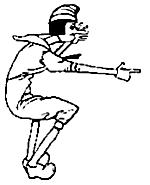
W��� he was alone, Pinocchio began to think of looking for something to eat. After trying here and there in vain, he had to be satisfied with looking at a few empty oyster shells. The best he could do was to make believe that he had already had a good meal out of them.
This, of course, was not very easily done, because the pangs of hunger kept making themselves felt more and more. At last, to forget them, he decided to make a tour of the island. This he did, and after that he took a nap.
When he awoke, it was near sunset. He had all he could do to get to the meeting place in time.
Off he hastened, and reached the spot just in time, for there was the dolphin, head out of water, looking for Pinocchio.
A small dolphin, about a yard long, was in the wake of the larger dolphin.
Pinocchio had made up his mind that even though he might be a dunce on the earth, still he knew more than a common dolphin. So he looked at the little fellow as much as to say, “Be very careful how you speak to me, young man. Remember, I am far above you.”
The old dolphin was very busy with the preparations for their journey. He came and went and gave orders to his servant.
